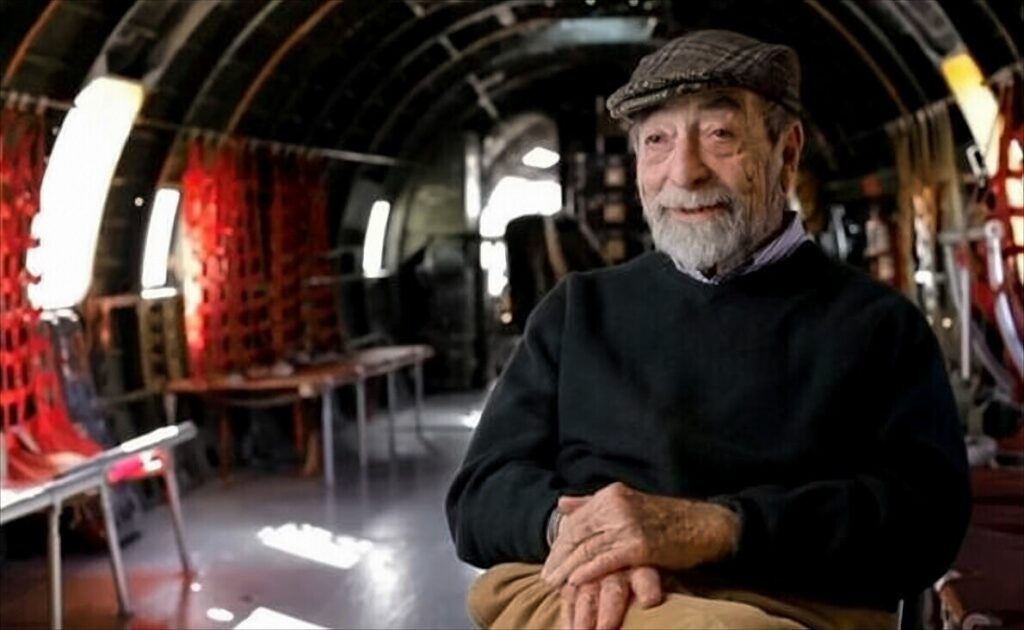He wrote the screenplay for “Star Trek: The Motion Picture,” episodes of “Mission Impossible” by the handful and novels that explored the changing world in the aftermath of World War II.
But Harold Livingston had his own starring role in a real-life adventure in 1948 as a risk-taking pilot, funneling weapons and aircraft into a still-young Israel as Egypt and other Arab nations pounded Tel Aviv at will. To many who had survived the Holocaust, the bombardments from their neighbors felt like history was already repeating itself.
As part of a small pack of American pilots — many freshly returned from war — Livingston’s heroics helped Israel fend off its attackers and gave birth to the Israeli Air Force.
“Honestly, they were all we had,” Israeli Prime Minister Yitzhak Rabin would say years later of the foreign volunteers.
As a young Jewish man, Livingston understood the irony that the war-torn German fighter jets he was flying into Israel had been used by the Nazis.
“The Egyptian pilots got the shock of their lives the first time the Messerschmitts took off to meet them,” Livingston told The Times in 1994.
A prolific writer in Hollywood, Livingston died early Thursday at his home in Westlake Village, his nephew Bobby said. Livingston was 97. The cause of death was old age.
Livingston had served overseas during World War II and had briefly worked for Trans World Airlines before settling into a humdrum job selling advertising copy in Boston, less-than-inspirational work that left him, at times, missing the dramatics of warfare. One morning, a letter arrived from an old colleague at the airlines, asking whether Livingston was interested in flying munitions to Israel.
“Listen, I wanted to fly again,” he told The Times in 2015. “That afternoon I was in New York and didn’t go home for a year.”
With a handful of others, Livingston flew out of an airstrip in Czechoslovakia, ferrying arms and wartime fighter jets into Israel. The new country’s air resources had been limited until the shipments poured in, giving rise to what became the Israeli Air Force, now considered one of the world’s most powerful aerial fighting forces.
The fighting continued for months before the United Nations brokered an armistice agreement between Israel and its Arab neighbors. Livingston returned home and moved West to pursue writing. His 1954 novel “The Coasts of the Earth” was a fictionalized account of his service in Israel and won the Houghton Mifflin Literary Fellowship Award.
He went on to write six more books as well as the screenplay for “Star Trek: The Motion Picture,” which included the original cast of the acclaimed television show, and a multitude of episodes for prime-time television shows.
His backstory might have been lost to the mists of time had producer Nancy Spielberg not spotted an obituary in The Times on Al Schwimmer, the fighter jet pilot who had pulled the volunteer force together in 1948.
“I said, ‘This is crazy!’ Israel is one of the top air forces in the world,” Spielberg told The Times in 2015. “What do you mean it started from an American calling his buddies?”
Spielberg said the full-throttle adventure of the mission and the good that came of it reminded her of her brother Steven’s TV miniseries “Band of Brothers,” or even his film “Raiders of the Lost Ark.”
“Above and Beyond,” a documentary Nancy Spielberg produced, featured Livingston, among others, and brought the long-ago mission back into focus.
Livingston is survived by his daughters Leah Hopkins and Eve Livingston; son David; granddaughters Elizabeth and Ariel; and his nephew.

